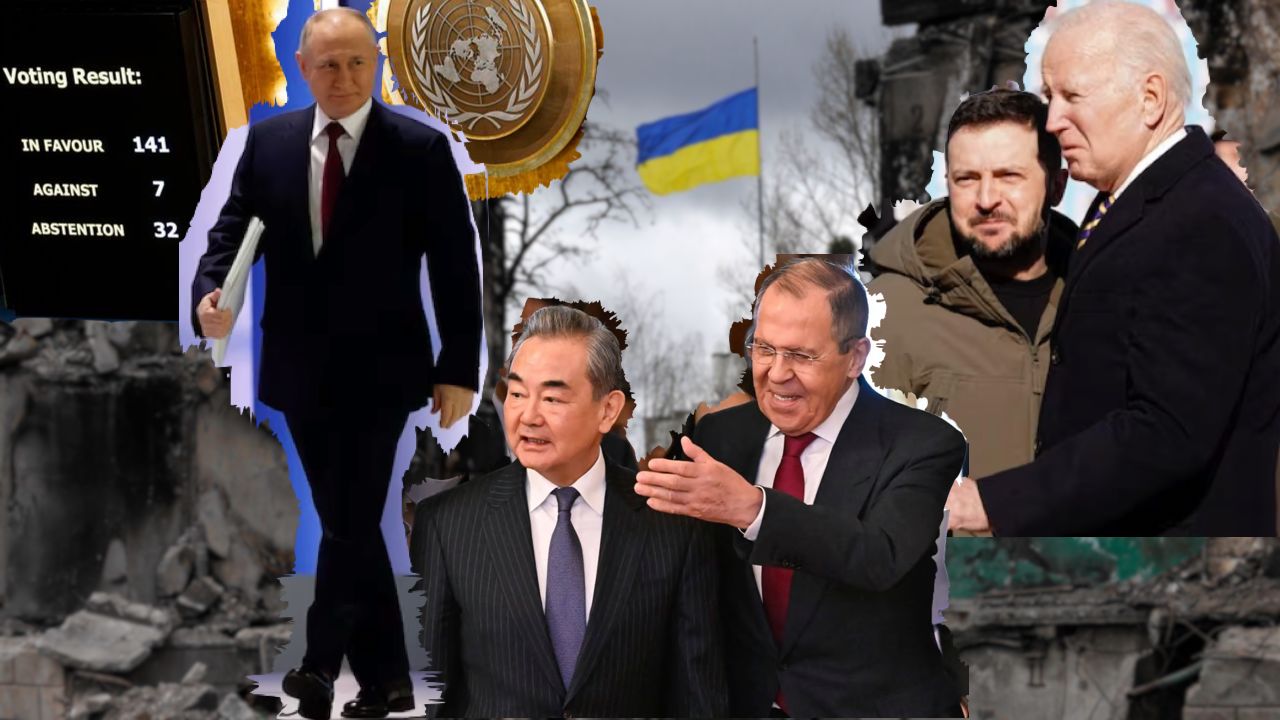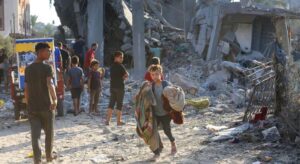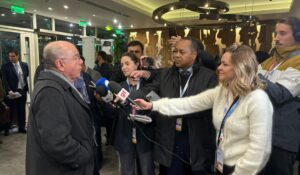
Published 02/24/2023 15:07 | Edited 02/26/2023 10:12
One year ago, on February 24, 2022, Russia took the extreme measure of militarily entering Ukrainian territory. The Russian military action, called Special Military Operation, began twenty days after a meeting between Putin and Xi Jinping in Beijing, and a few days after the Russian parliament, the Duma, approved a resolution in which it recognized the self-proclaimed Republics of Donetsk. and Lugansk, located in the extreme east of Ukraine, in the Donbass region. Part of the background to the war is the non-compliance with the 2014 Minsk I and II Accords, NATO’s persistence in officially incorporating Ukraine into the treaty, the growth of fascist and neo-Nazi cells in Ukrainian territory and the massacre of the Russian population of Donbass . Today, a year after the development of the war, the end of the conflict does not seem close and the steps taken by countries that can influence its outcome or its extension reveal a lot about geopolitics in the third decade of the 21st century.
At least five important events marked the passing of the twelve months of the war and could reveal whether the conflict is closer or closer to its end. They are, the 59th Munich Security Conference (February 17th to 19th), Biden’s visit to Ukraine (February 20th), Putin’s speeches to the Russian nation, in parliament and at a concert (February 20th and 21st). ), the visit of Chinese Foreign Minister Wang Yi to Moscow (February 22) and the UN Resolution on peace in Ukraine (February 23).
This year’s Munich Security Conference did not have Russia as a guest. It fell to China to be a dissenting voice in a meeting that intended to classify Russia as solely responsible for the war in Ukraine. Far from taking advantage of the space and the opportunity of the meeting of so many government authorities to outline a plan for the establishment of a dialogue and negotiation table, the line adopted was that of a competition between those who support Ukraine in the most decisive way, sending more weapons and more features. It also served as an attack on countries that, like Brazil, are neutral in relation to the conflict, seeking a margin for mediation. During the meeting, Chinese Foreign Minister Wang Yi informed that China would be producing a plan with the objective of achieving peace in Ukraine and greatly reinforced the path of dialogue, contrary to almost all of his counterparts present at the meeting.
As the Munich Conference ended in Germany, the US President was traveling from the US to Eastern Europe on a surprise visit to Ukraine. He left Poland on a train that traveled nearly 10 hours to Kiev, where he met with Ukrainian President Vladimir Zelensky. The trip served to make even clearer the US determination to prolong the Ukrainian resistance as a way to challenge Putin and rule out any possibility of opening dialogue in the next period. The western press, including the Brazilian one, was delighted to report the almost romantic challenges of an unusual journey by the North American president from a small town in Poland to Ukraine aboard a conventional train. The fact that Biden went to a war zone not controlled by US forces was greatly highlighted, something unthinkable. But the most important extract from that trip was the clear nod by the US to maintaining a strategy of betting on war and not on an attempt to deter conflict.
As Biden returned to Warsaw from Kiev and prepared to deliver a speech on the need to support Ukraine, Putin prepared in Moscow to deliver two speeches to the nation, one in parliament at an annual state of the union speech and the other for an audience of approximately 200,000 people, in a stadium, with notes on the current moment of the war offensive against Ukraine. In both speeches, Putin hardened his speech with accusations against the West for its responsibility for the provocations that led to the war, informs that Russia is suspending its participation in the New Start strategic arms reduction treaty, reinforces the idea that the war aims to protect Russian borders and appeals to Russian nationalism.
Following his speeches, on the 22nd in Moscow, Putin received the highest official in China’s international relations, the Minister of Foreign Affairs Wang Yi, who also met with the Russian Foreign Minister, Serguei Lavrov, and the Secretary of the Security Council. , Nikolai Patrushev. The meeting was perceived as a preparation for a possible visit by Xi Jinping to Moscow and the strengthening of the strategic partnership between the two countries on various issues, including the development of the war in Ukraine. The Chinese diplomat reinforced China’s willingness to cooperate in de-escalating and overcoming the conflict and this also appeared emphatically in Yi’s participation in the Munich Conference, in his abstention during the vote on the UN resolution on Ukraine on the 24th and in the presentation of a twelve-point proposal by the Chinese for an end to the war. In these points, presented by the Chinese, point 4 stands out, which proposes the resumption of talks and that dialogue and negotiation is the only viable solution to the crisis in Ukraine.
We arrive, therefore, at the last event analyzed in this short text on the passage of a year of the war, which is the vote on a resolution on peace in Ukraine, held by the UN General Assembly on February 23rd. The text of the resolution provides for an unconditional withdrawal of Russian troops from Ukrainian territory. Its approval had 141 votes in favor, 7 against and 32 abstentions. But it points much more to an attempt to deepen Russia’s international isolation than to a disposition towards a dialogued and negotiated resolution of the conflict. This is probably why so many countries from the global south, attacked at the Munich Conference for their neutrality, chose to abstain from voting, such as China, India, Iran, South Africa and others. Strangely, Brazil is not among them.
The events listed here, such as the Munich Conference, Biden’s visit to Ukraine and the construction of the UN resolution, with a text proposed by Ukrainian diplomats and their European allies, demonstrate that the West’s attempt is to divide the world around those who are “for and against Ukraine”, but this says much more about war than about peace. Fortunately, many countries that have sought neutrality over the last few months, and that were attacked in Munich and abstained at the UNGA, can be very important in the quest to really deter the conflict and seek channels of dialogue for the opening of a real table of negotiations, without unconditionalities, without unilateralism, without sanctions, boycotts and sabotage. That proposals such as Lula’s, of a group of countries to mediate, or Xi Jinping’s, of the twelve points on the crisis in Ukraine, stand out over the West’s bet on war, as a sign of new times in a multipolar world.
Source: vermelho.org.br

